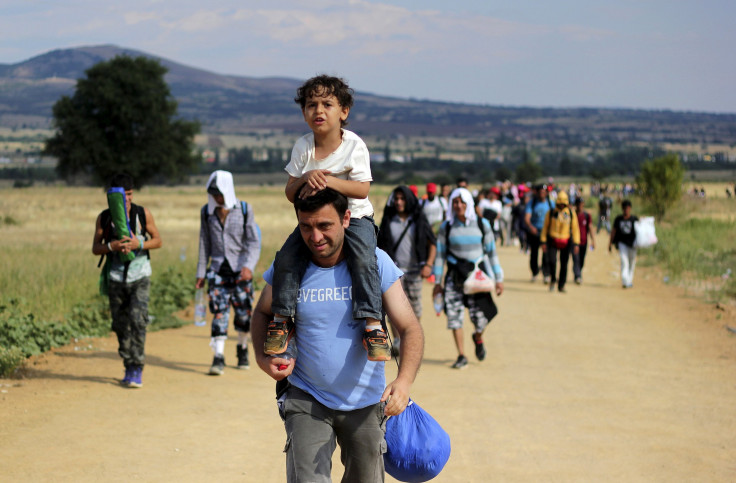Europe Migrant Crisis: 'No Military Solution' To Massive Refugee Influx, UN Official Says

A senior United Nations official warned Tuesday that there is “no military solution” to the massive migration crisis that has seen an influx of hundreds of thousands of people into Europe.
U.N. Special Rapporteur on the Human Rights of Migrants Francois Crepeau told Al Jazeera that the European Union would need to step up its response to the crisis significantly, but added that the political will to do so would not be possible until domestic parties stopped capitalizing on populist fears about immigration.
“The political situation regarding migration and migration policies in the EU is completely out of control,” he said. “At the moment the debate is driven by fantasies and myths: ‘Migrants take jobs, change our values; we’re overcrowded.’”
The U.N. has warned that the world is facing its largest refugee crisis since World War II, caused by spiraling chaos and destruction in the Middle East and Africa, particularly in Syria, from where an estimated 9 million people have fled since conflict began in 2011. So far, an unprecedented 340,000 migrants have entered Europe this year.
Crepeau said that even the 2,373 migrant deaths this year would not deter new arrivals from attempting the often-risky passage across the Mediterranean. “They are coming and they will continue to come, and there’s nothing we can do about it,” he said.
So far, the EU has agreed to resettle about 32,000 migrants among its member nations, attempting to ease the burden on countries like Italy and Greece, where most of the asylum seekers land. However, several Eastern European nations have pushed back against the program. In Hungary, where over 100,000 migrants have entered this year, the government has begun building a fence along its border with Serbia. Slovakia said last week that it would be willing to meet its migrant quotas, but would only take Christian migrants.
Crepeau called for a stronger coordinated response from the EU and suggested that the countries adopt another proposal that would allow refugees to submit asylum applications closer to their country of origin, eliminating the need for dangerous travel across the Mediterranean, or the Eurotunnel between France and the U.K.
The migration crisis, meanwhile, has driven a number of organizations across Europe to capitalize on the anti-immigrant and euroskeptic sentiment.
In Germany, the anti-immigrant Patriotic Europeans Against the Islamization of the Occident, or Pegida, movement drew tens of thousands of marchers in Berlin in January, though the gathering was condemned by public officials and met with larger counter-protests. German Chancellor Angela Merkel stressed that “Islam belongs to Germany.”
Crepeau emphasized that such movements would only worsen the problems that the migrant crisis posed. "If people want to come, let them come," Crepeau said, "but we need to organize it."
© Copyright IBTimes 2024. All rights reserved.





















